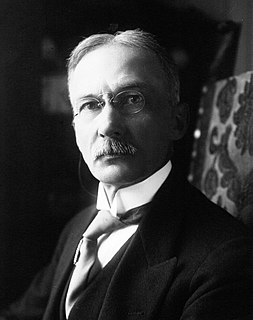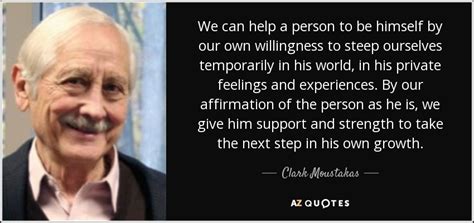A Quote by James Mark Baldwin
In the first place, Descartes stands for the most explicit and uncompromising dualism between mind and matter.
Quote Topics
Related Quotes
Professors rarely speak of the place of eros or the erotic in our classrooms. Trained in the philosophical context of Western metaphysical dualism, many of us have accepted the notion that there is a split between the body and the mind. Believing this, individuals enter the classroom to teach as though only the mind is present, and not the body.
"There is one basis of science," says Descartes, "one test and rule of truth, namely, that whatever is clearly and distinctly conceived is true." A profound psychological mistake. It is true only of formal logic, wherein the mind never quits the sphere of its first assumptions to pass out into the sphere of real existences; no sooner does the mind pass from the internal order to the external order, than the necessity of verifying the strict correspondence between the two becomes absolute. The Ideal Test must be supplemented by the Real Test, to suit the new conditions of the problem.
As a man who has devoted his whole life to the most clear headed science, to the study of matter, I can tell you as a result of my research about atoms this much: There is no matter as such. All matter originates and exists only by virtue of a force which brings the particle of an atom to vibration and holds this most minute solar system of the atom together. We must assume behind this force the existence of a conscious and intelligent mind. This mind is the matrix of all matter.
No sin is committed merely because a thought enters the mind, provided it is not made welcome. Perhaps we may use the figure that the thought first passes into an anteroom, where it stands before the mind acting as a judge. No matter how sordid or evil, it has not touched the personality with its infamy nor in any way laid guilt upon the soul unless and until the mind acting as judge admits it with a welcome. If the mind decides against it and dismisses it, the personality is not only unsullied but is, on the contrary, by this act of rejection stimulated and strengthened in moral power.
Mind dissolves only when you don't choose. And when there is no mind, you are for the first time in your crystal clarity, for the first time in your original freshness. For the first time your real face is encountered. Mind is not there - the divider. Now existence appears as one. Mind has dropped; the barrier between you and existence is no more. Now you can look at existence with no mind. This is how a sage is born. With the mind - the world. With no mind - freedom, MOKSHA, KAIVALYA, NIRVANA. Cessation of the mind is cessation of the world.
One way of saying that is that there is an objective reality beyond our mind. A way to think of this in a philosophic sense is to look between the two great extremes: the idealist philosophy that says mind and consciousness is the only thing and that matter is simply an illusion, or a Maya, the product of mind; and the other extreme, a strict materialist determinism, which says that mind and consciousness is a secondary phenomenon of the collision of matter.








































